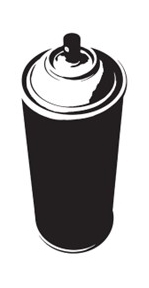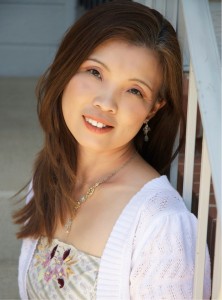Due to limitations from chronic health conditions, I rarely leave the house socially. I sometimes have anxiety attacks before social events because I struggle with my own self-judgement and criticism; I often feel I’m worthless. I have been unable to sustain gainful employment because illness, symptoms, and treatments have consumed all of my energy and resources.
Though cared for by family, because I do not work, I am judged by others for leaving my house: “If you’re well enough to go out for the evening, then you must be well enough to work.” Somehow though, socializing for a few hours equates to the physical and mental skill-sets needed for 40+ hours of labor.
People who are not limited in their abilities may often overlook how it can take hours for people with illnesses or disabilities to plan accommodations to be able to go out, and afterwards, several days of recovery from the exertion. In order to attend an event, I must plan around my symptoms, which can include severe pain in my back and legs, migraines, dehydration, and extreme fatigue. I may also need to schedule treatments within days after an event in order to manage the worsening of symptoms from the exertion of my outing.
Despite my limitations, I carefully planned for and attended the recently-released The Art of Banksy exhibit in Denver (Denver Sports Castle, 100 N. Broadway). I researched accessibility, transportation, and parking options to ensure I didn’t lose energy from extra walking, and could leave quickly if my symptoms became unmanageable. Upon attending, I found that there were paid parking lots and metered street parking next to the entrance, and the exhibit was curated along walking ramps instead of stairs.
A collection of privately-owned Banksy art, The Art of Banksy was invited to exhibit in Denver as part of a national tour through eight cities that feature prints, canvasses, screenprints, sculptures, stories, including depictions of pranks and documentary clips from works of the obscure artist’s notable periods between 1997-2008. Unidentified to the public, and not officially represented on social media nor most galleries and institutions, British street artist, “Banksy,” is anonymously known for his stenciled graffiti and anti-establishment slogans.
Like rats, Banksy’s graffiti art reveals uncomfortable truths about society, and his messages spread like a nuisance to the status quo.
Like messaging alluded from Banksy’s art, American culture arguably values productivity above all else. Society has little tolerance for people who need to convalesce, or who are unable to work, for any reason. The culture too often treats people who are chronically ill or disabled like it’s our job to get better (i.e., productivity), and if we are still sick, it must be because we are not doing enough. It’s ableist propaganda.
Ableism can be defined as “discrimination in favor of able-bodied people.” The notion that any-body can accomplish anything as long as they work hard enough is ableist, and it ignores the nuances of the forms of capital people need in order to succeed: economic capital, social capital, intellectual capital, physical ability, etc. A person with epilepsy may likely never become a pilot; it does not matter how hard they work for it. Many of us are faced with the reality that we are limited by our bodies and will not accomplish our dreams. And we are shamed, because an inspirational story will arise about a person with a similar disability who went on to climb Mount Everest, for example. Yet, the nuances of abilities and capital can still get ignored.
Currently, I devote all of my energy to healing. I manage an average of 25 medical and alternative health appointments each month. I research my diagnoses, I follow the doctor’s orders, I work on physical rehabilitation and my mental health. I am still learning how to live with my disabilities, and I’m still learning how to balance debilitating chronic illness with the need to earn, and enjoy, a living. In the meantime, the question remains, “So, what do you do?”
One of the works at The Art of Banksy exhibit featured Banksy’s symbolic, stenciled “rat,” portrayed holding a sign that reads, “Because I’m worthless”. Rats are symbolic of the unwanted; they carry disease around the globe, and participate in the process of decay. To most people, they are considered a pest and nuisance to human populations.
There is a symbolic parallel between the rat and the graffiti artist. Generally, graffiti is vandalism; it is considered property damage just as a rat infestation causes damage. And, there is a profound irony with Banksy’s graffiti in that it increases the value of the property. Like rats, Banksy’s graffiti art reveals uncomfortable truths about society, and his messages spread like a nuisance to the status quo.
Hard work does not equate to value. It’s difficult to feel intrinsic value in a culture that excludes people with disabilities. Yet, I still feel guilt and shame for being sick at all. Many people have told me that I’m a lazy burden, and my inner-critic has fully absorbed the message. Banksy’s art with the subject of rats resonated with me — even a rat has intrinsic value.
The exhibit aptly displayed a window into the mind of Banksy’s narrative, such as the quote, “If you feel dirty, insignificant or unloved, rats are a good role model. They exist without permission, they have no respect for the hierarchy of society […].” I’m still learning how to get to a mindset where, as Banksy says, I can “exist without permission.”
 “If you feel dirty, insignificant or unloved, rats are a good role model. They exist without permission, they have no respect for the hierarchy of society […].” -Banksy
“If you feel dirty, insignificant or unloved, rats are a good role model. They exist without permission, they have no respect for the hierarchy of society […].” -Banksy
(PHOTOGRAPHY BY KYLE FLUBACKER)
FOR INFORMATION ABOUT THE ART OF BANKSY TOUR THAT RUNS THROUGH JUNE 12, READ MORE, AND VISIT THE ART OF BANKSY, DENVER.
SaraMarie Beckley is a writer, artist, and advocate for mental health, invisible illness and disability. She is learning to live with multiple health conditions and disabilities. She writes from her personal experiences to educate, spread awareness, and to provide practical guidance for the sick and disabled communities to navigate the systems that are designed to exclude them. SaraMarie can currently be found on Instagram @saramarie.beckley.
 Maki DeLaet serves as the president of Wheat Ridge Business Association (WRBA) in Wheat Ridge, Colorado. The WRBA encourages its members to look for ways to form strategic partnerships where helping build each other’s businesses becomes second nature. Long time members of the WRBA, Maki and her husband, Brian, have owned EduCyber – a digital marketing company since 1998.
Maki DeLaet serves as the president of Wheat Ridge Business Association (WRBA) in Wheat Ridge, Colorado. The WRBA encourages its members to look for ways to form strategic partnerships where helping build each other’s businesses becomes second nature. Long time members of the WRBA, Maki and her husband, Brian, have owned EduCyber – a digital marketing company since 1998.
 “If you feel dirty, insignificant or unloved, rats are a good role model. They exist without permission, they have no respect for the hierarchy of society […].” -Banksy
“If you feel dirty, insignificant or unloved, rats are a good role model. They exist without permission, they have no respect for the hierarchy of society […].” -Banksy